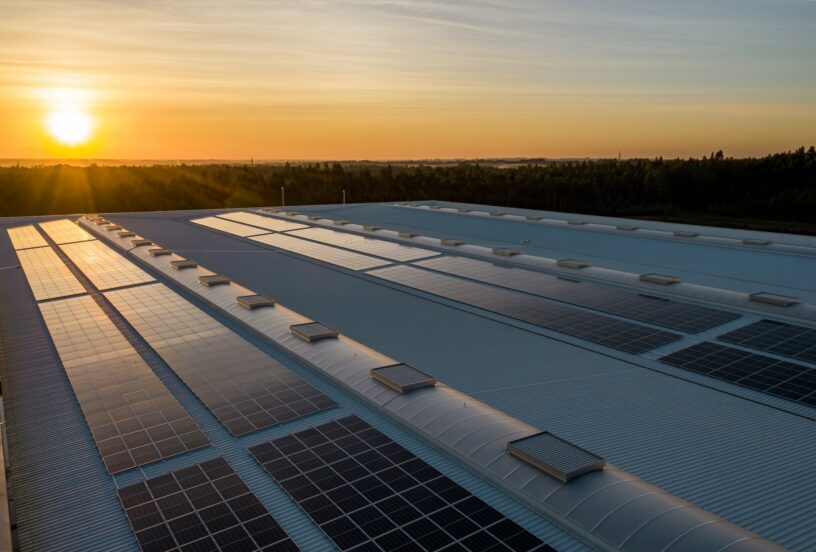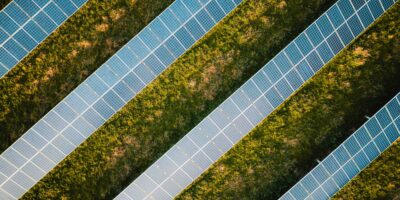Hello, fellow energy enthusiasts! Today, we’re diving into the exciting world of solar energy. If you’re an eco-conscious individual considering the switch to renewable energy for your home or workplace, this article is for you. So, grab a cup of your favorite eco-friendly beverage, sit back, and journey into the heart of the sun!
Intro to Solar Energy
Did you know that every hour, the sun bathes the Earth with more energy than all of humanity uses in a year? It’s time we tapped into this boundless, renewable power. But first, let’s understand what solar energy is.
Solar energy is power from the sun that is converted into thermal or electrical energy. It’s the cleanest and most abundant renewable energy source available. Solar technologies can harness this energy for various uses, including generating electricity, providing light or a comfortable interior environment, and heating water for domestic, commercial, or industrial use.
Types of Solar Energy
Now, let’s delve into the different types of solar energy. The two main types are Photovoltaic (PV) and concentrated solar power (CSP).
Photovoltaic Solar Energy (PV)
Photovoltaic technology directly converts sunlight into electricity. This happens through a process known as the photovoltaic effect, where photons from the sun are absorbed by a semi-conducting material (usually silicon) in the solar cells, causing electrons to move and create an electric current.
PV solar panels are the type you commonly see on rooftops of homes and buildings. They’re versatile, scalable, and the best part? They’re becoming more affordable every year.
Benefits of PV Solar Energy
- Clean and Renewable: PV solar energy is a sustainable choice that reduces your carbon footprint. It doesn’t release any harmful emissions or pollutants in generating electricity.
- Energy Independence: With solar panels, you generate electricity, reducing your dependence on utility companies. You might even produce surplus energy that you can feed into the grid!
- Reduced Energy Costs: While the initial investment might seem high, the long-term savings are considerable. Plus, many countries offer incentives or subsidies to offset the installation costs.
Concentrated Solar Power (CSP)
CSP is a technology that harnesses the sun’s energy differently. Instead of converting sunlight directly into electricity, CSP uses mirrors or lenses to focus a large area of sunlight onto a small area. The concentrated light is then used as a heat source for a conventional power plant.
While CSP is primarily used in large-scale power plants rather than for individual homes or buildings, it’s an essential piece of the solar energy puzzle worth mentioning for its potential to contribute to our sustainable future.
Benefits of CSP
- Large-Scale Energy Production: CSP can produce a large amount of energy, making it a viable option for powering cities and industries.
- Energy Storage: One of the significant advantages of CSP over PV is its ability to store energy for use when the sun isn’t shining. This makes it a reliable and consistent source of power.
- Lower Carbon Emissions: Like PV, CSP is a clean energy source that can significantly reduce our reliance on fossil fuels and lower greenhouse gas emissions.
Solar Energy for Your Home or Work
Now that we’ve explored the types of solar energy, let’s see how you can apply this knowledge to your home or workplace.
For most individuals and small businesses, PV solar panels are the way to go. They can be installed on rooftops or ground-mounted and are suitable for most geographic locations. The energy produced can be used directly in your household or fed back into the grid.
Before we continue, let’s discuss some important factors to consider when choosing solar panels. These include efficiency, temperature coefficient, warranty, and the climate in your area.
Efficiency measures how well a solar panel converts sunlight into electricity. A higher efficiency rating is better because your solar panel can convert more of the sunlight it captures into electricity. Based on maximum module efficiency, some of the top manufacturers that make the best solar panels are SunPower, REC, and Panasonic, with efficiency ratings of 22.8%, 21.9%, and 21.7%, respectively.
The temperature coefficient is another critical factor. This measures how much a panel’s production is lowered in hot temperatures. Solar panels operate most efficiently when kept cool. For every degree above 25° C (or 77° F), your solar panel’s electricity production will decrease by the temperature coefficient. A lower temperature coefficient is better. Panasonic and REC boast an impressive -0.26 temperature coefficient among the top manufacturers.
A solar panel’s materials warranty protects against equipment failure due to environmental factors or manufacturing defects. It’s noteworthy that Panasonic, SunPower, and REC all offer a 25-year warranty, which is significantly above the industry standard of 10 years.
Lastly, it’s crucial to consider your region and climate. For example, if you live in an area that doesn’t get a lot of sunlight and your home is prone to shade and overcast clouds, you might opt for high-efficiency panels like SunPower’s, which have a 22.8% efficiency. If you live in a warm & dry climate, panels from manufacturers like Panasonic and REC are a great choice, boasting impressive temperature coefficients and extended warranties.
Now, let’s look at some of the best solar panels you can consider for your home or workplace.
- SunPower: Known for having one of the best efficiency ratings on the market, SunPower’s solar panels are a popular choice for residential and commercial installations. They’re an ideal choice for installs with limited space and need to maximize it.
- REC: REC’s Alpha Black series boasts an impressive temperature coefficient rate compared to other panels. The half-cut cell technology and twin panel layout boost efficiency, making them excellent for homes. They also come paired with Enphase microinverters. REC produces some of the best inexpensive solar panels, and their Alpha Black series is popular with homeowners with an eye for aesthetics.
- Panasonic: Known for quality workmanship and efficiency, Panasonic also offers a solid 25-year warranty that exceeds expectations. They are also known for their line of solar battery storage, including the EverVolt.
Almost all cases, the best solar panels for your home are made with premium monocrystalline solar cells. Monocrystalline cells are made with a single crystal of silicon instead of many silicon fragments melted together, as is the case with polycrystalline cells. This means the cells are more efficient at converting sunlight to electricity and have a sleek black tint.
Wrapping Up
Going solar is a fantastic way to reduce energy costs, reduce carbon footprint, and promote sustainability. It’s a win for you, a win for the environment, and a win for the future. It’s essential to consider your unique situation and needs when deciding on the right solar technology and solar panels.
Your solar technology should align with your energy goals and requirements, whether it’s photovoltaic or concentrated solar power systems.
When selecting the best solar panels for your home or business, it’s important to consider factors such as efficiency, temperature coefficient, warranty, and climate compatibility. By evaluating these factors and comparing the top manufacturers like SunPower, REC, and Panasonic, you can find the ideal solar solution for your needs.
In addition to choosing the right solar panels, working with a reputable solar installer who can help you design and implement a system that maximizes energy production, optimizes cost savings, and ensures long-term reliability is crucial. A good solar installer will conduct a thorough site assessment, provide recommendations based on your energy usage and budget, and assist with permitting, installation, and maintenance.
As solar technology advances and costs decline, more and more homeowners and businesses are switching to clean, renewable energy. Investing in a high-quality solar system tailored to your specific needs allows you to enjoy long-term energy savings, reduce your carbon footprint, and contribute to building a more sustainable future.
In conclusion, going solar is an environmentally responsible choice and a financially sound investment. With the right solar panels and a skilled installation team, you can harness the sun’s power to generate clean, renewable energy for your home or business. As the world continues to move towards a greener, more sustainable future, embracing solar technology is critical in reducing our reliance on fossil fuels and creating a brighter tomorrow for future generations.



